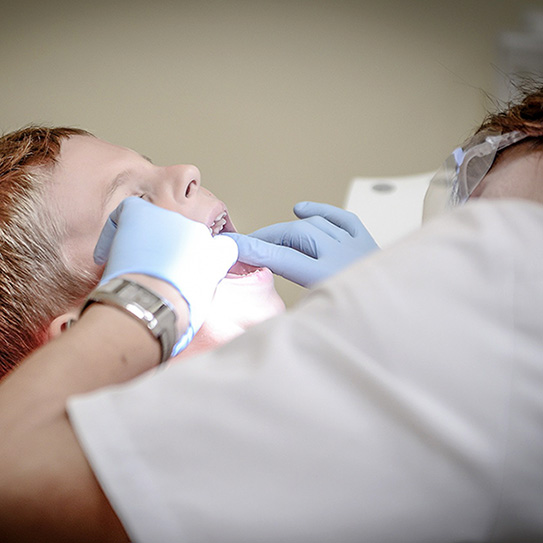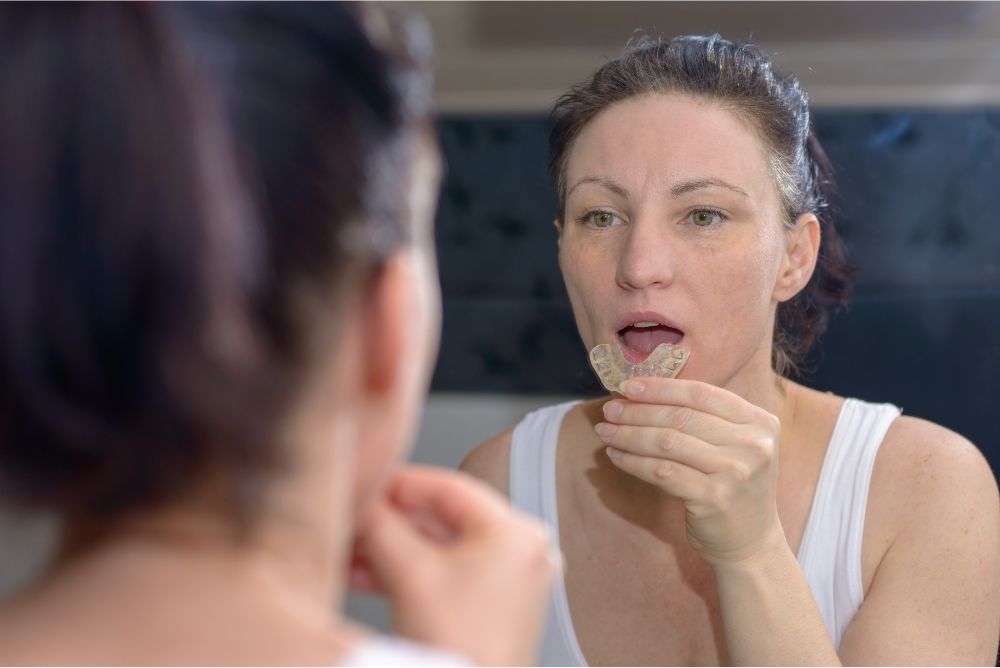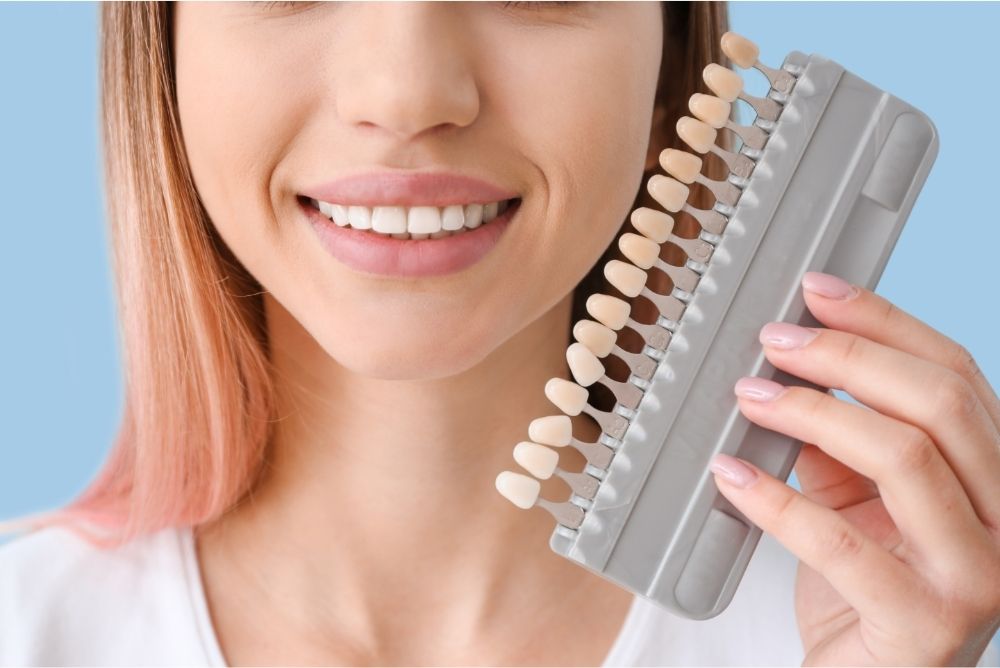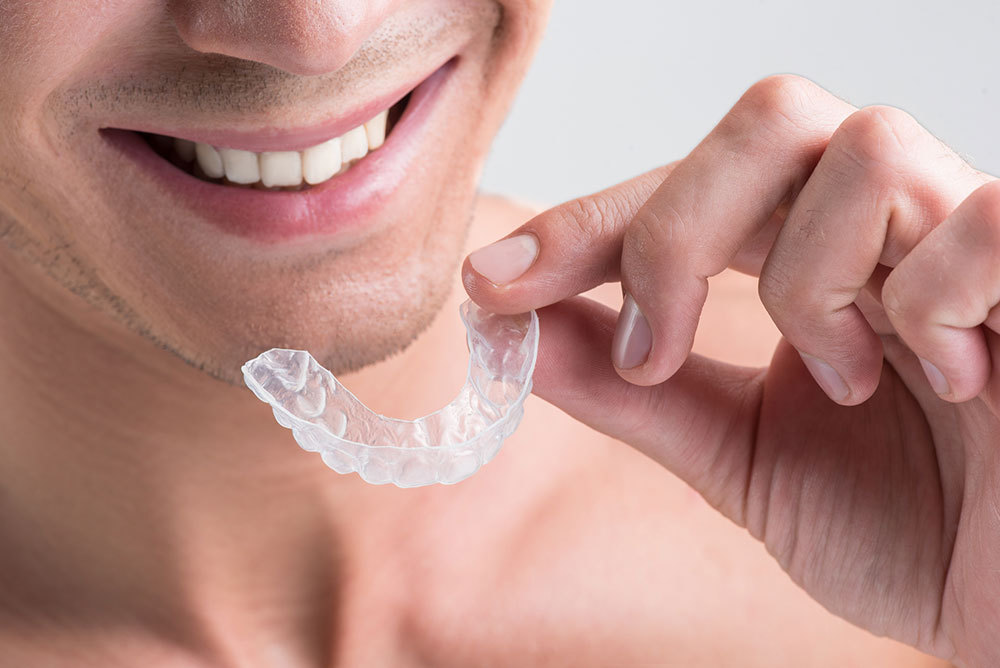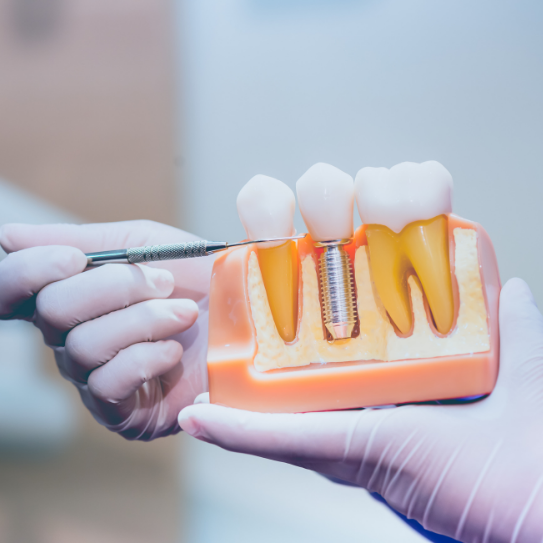

A bright smile can undoubtedly impact your social life, professional life, and mental and emotional well-being positively. Your smile is typically the first thing that people see. There is no question that a great smile is a huge asset and should not be underestimated.
So what do you do if your teeth are missing? Tooth decay, accidents, and injuries that once would have left someone with missing teeth can now be treated to look brand new with dental implants.
Dental implants are the only form of tooth restoration that replaces the entire tooth, from root to crown. With the help of local anesthesia, they’re inserted through the gums during a short surgical procedure. A titanium post used as a replacement tooth root is screwed into the jawbone, which bonds with the surrounding bone. After a short healing process, the base is securely fused to the jaw, and topped with artificial replacement teeth that match y3our others perfectly.
There are several types of implants –- single tooth replacement, fixed multiple teeth replacement, and a whole new set of teeth with removable implant-supported dentures. So regardless of how many teeth need replacing, there are options for everyone.
To be considered a good candidate for dental implants, you need to have the following:
- A good level of oral hygiene and health
- Have healthy gums
- Healthy and strong bone in the jaw to support the implant
- Good health overall and not be suffering from any conditions which might prevent you from having surgery
- A non-smoker
- A fully developed jaw
Are Implants Better than False Teeth?
Removable dentures have been the only solution for missing teeth for centuries. Besides the uncomfortable adhesive glues, they usually make talking and eating awkward and difficult.
When we chew food with our natural teeth, it stimulates the jaw bone keeping it solid. Dentures provide no stimulation to the bone, resulting in bone loss in the jaw. With bone loss comes ill-fitting dentures that can slip and fall out easily.
Implant posts are fused to the jawbone and become a part of you. They function exactly the same way as the natural teeth roots, significantly reducing bone loss.
Dental implants won’t embarrass you by slipping and sliding while you’re trying to chew your food or are engaging in a conversation. You can even brush the same way as regular teeth! Dental implants have incredible success rates and are the gold standard when it comes to replacing missing teeth.
What are the benefits of dental implant surgery?
- Stand-alone structures which don’t need support from other teeth
- Help prevent bone loss
- It lasts long term if cared for properly
- Look, feel, and act like natural teeth
- Comfortable and natural-looking
- Easy to clean
Many people are surprised at how simple a dental implant procedure is. Most patients experience no pain during cosmetic implant surgery and very minimal discomfort afterwards. And if given proper care, implants can last a lifetime.
Are you interested in learning more about our implant procedure treatment plan or other dental care services? If so, contact us at Manhattan Dental Care Studio in Manhattan Beach, CA. We look forward to helping bring back your smile.

